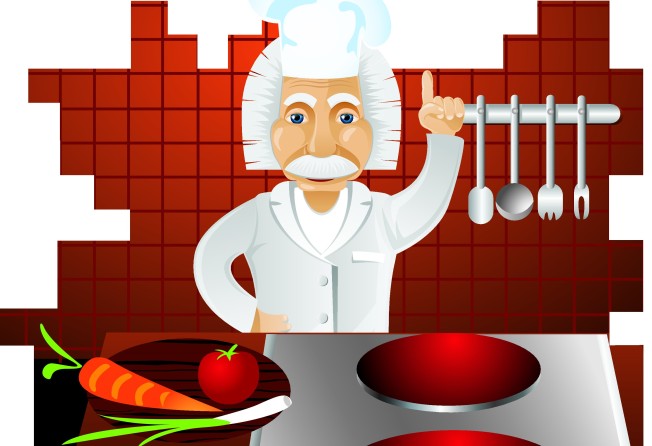
Truc: electric shock
Susan Jung


After searing both pieces of beef, I divided red wine, home-made chicken stock, caramelised onions and season-ings between the pans then covered them tightly so the meat could braise in the oven - with a lid on the Le Creuset, and a sheet of aluminium foil over the roasting pan. About two hours later, I checked the contents and found that the aluminium foil that had come in contact with the meat in the roasting pan was starting to pit and corrode, and that the meat touching the foil had turned grey. I discarded the foil, trimmed off the grey bits then laid a sheet of parchment paper over the meat so it would act as a buffer between the meat and the fresh sheet of foil covering it. Everything was fine after that - the foil didn't corrode - and about nine hours later I had two wonderfully tender chunks of meat.
I wondered why the foil I used initially corroded so quickly. I know from experience that acidic foods can eat holes into foil, but the process is usually slower and less extreme. I searched for an explanation in my food science books and found one in What Einstein Told His Cook, by Robert Wolke. A reader asks him why the foil used to cover lasagne in a stainless-steel baking dish pitted where it came in contact with the food. He replies: "Aluminium is what chemists call an active metal, easily attacked by acids such as the citric acid and organic acids in tomatoes," - and, presumably, the acid in wine. But, he continues, "When aluminium metal is in simultaneous contact with a different metal and an electrical conductor such as tomato sauce … the combination of the three materials actually constitutes an electric battery. An electrical (more accurately an electrolytic) process, not a simple chemical one, is what chews up the foil."
What's interesting is that the pan has to be made of a different metal for the electrolytic process to take place: if I had used an aluminium pan to braise the beef, the foil covering the meat wouldn't have corroded in such a short period of time. Wolke advises that if you use foil to cover ingredients in a stainless-steel container, the foil shouldn't come into contact with the food - something I figured out on my own.
Truc (tryk): noun, masculine, trick, gimmick, device. A French word for a chef's secret.